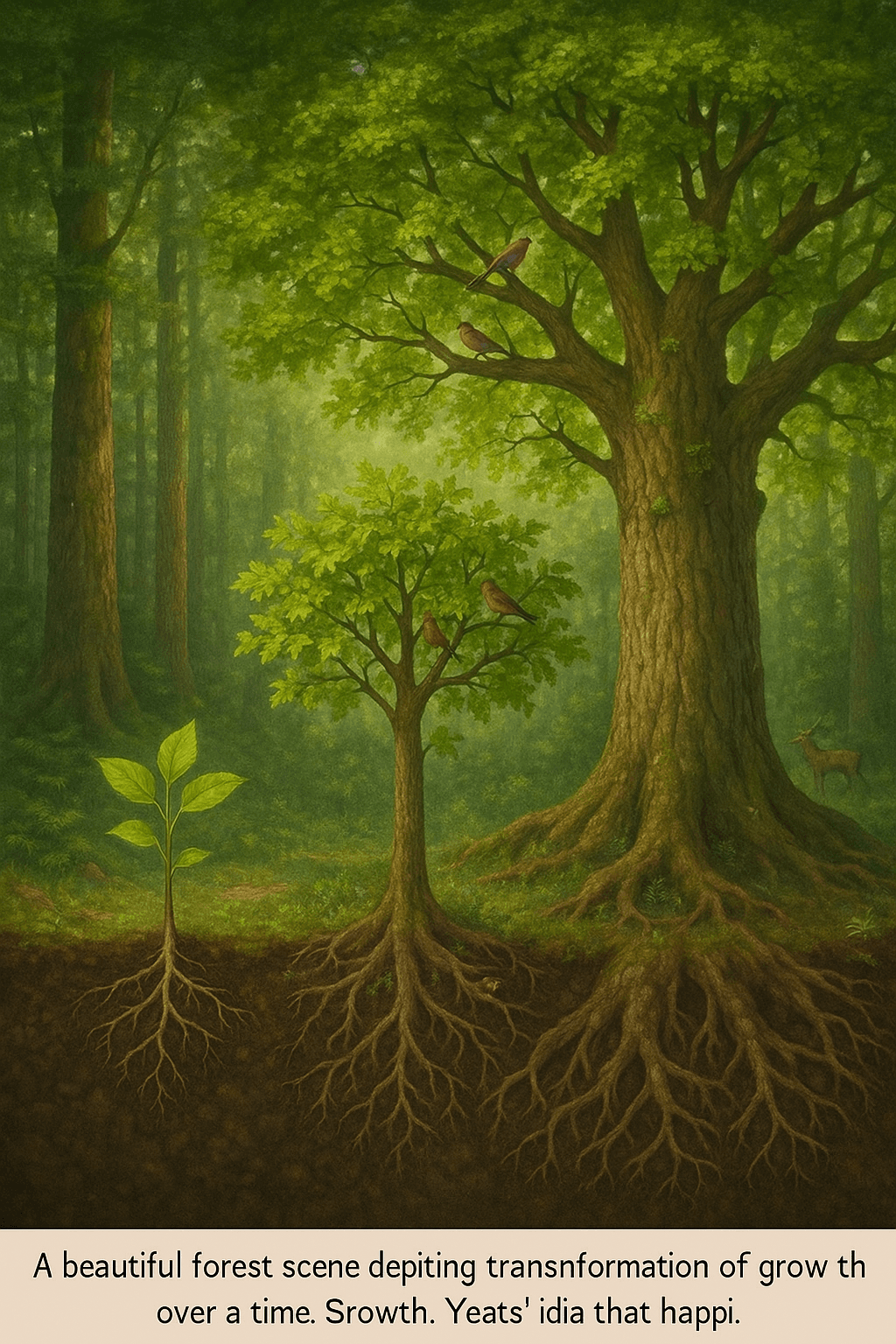Happiness as Growth: Beyond Pleasure or Virtue

Happiness is neither virtue nor pleasure nor this thing nor that but simply growth, we are happy when we are growing. — William Butler Yeats
—What lingers after this line?
One-minute reflection
Why might this line matter today, not tomorrow?
Yeats’s Unique Definition of Happiness
William Butler Yeats departs from traditional understandings of happiness by asserting that it is not rooted in virtue, pleasure, or any single fixed aspect of existence. Instead, he argues that happiness derives from ongoing personal growth. This perspective challenges established philosophical views—Plato’s association of happiness with virtue, for example—by relocating its source from achievement or possession to the continual process of development.
Contrast with Classical Philosophies
Historically, philosophers such as Aristotle have linked happiness (eudaimonia) to virtuous living, while others, like Epicurus, saw it as the pursuit of pleasure. Yeats, however, suggests these classical categorizations are inadequate. His stance implies that static states, whether moral or pleasurable, lack the dynamic quality necessary for true fulfillment, inviting us to reconsider happiness as a moving target rather than a destination.
Growth as Transformation and Renewal
Expanding on Yeats’s idea, growth encompasses not only intellectual and emotional development but also the broader experience of transformation. In literature, the motif of change is central—such as in Hermann Hesse’s ‘Siddhartha’ (1922), where the protagonist’s happiness emerges through continuous learning and spiritual progression. This narrative echoes Yeats’s belief that the journey itself, rather than any fixed point, defines our sense of well-being.
Personal and Societal Implications
This philosophy has implications at both the individual and collective level. For the individual, it places value on lifelong learning, resilience, and self-discovery—processes deeply explored in modern psychology’s growth mindset theory, as popularized by Carol Dweck. For society, it suggests that cultures which prioritize progress and adaptability may cultivate a more authentic, sustained form of happiness among their members.
Embracing Uncertainty and Change
Ultimately, Yeats’s view encourages us to embrace change and uncertainty as essential elements of a happy life. Rather than seeking contentment in stability, we find it in the willingness to evolve. In this light, setbacks and challenges become opportunities for growth, reinforcing the idea that happiness lives not in perfection but in the uninterrupted pursuit of becoming more fully ourselves.